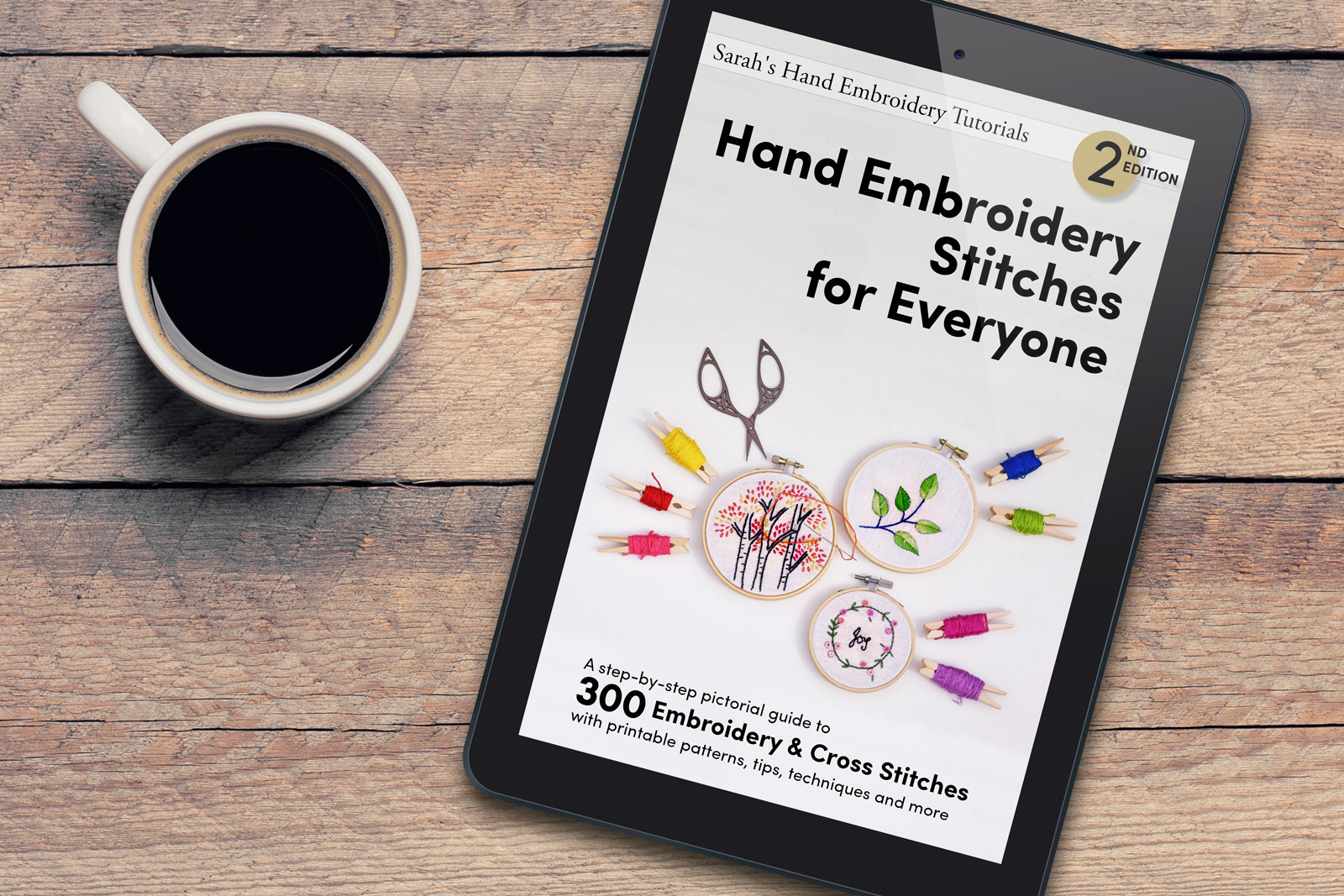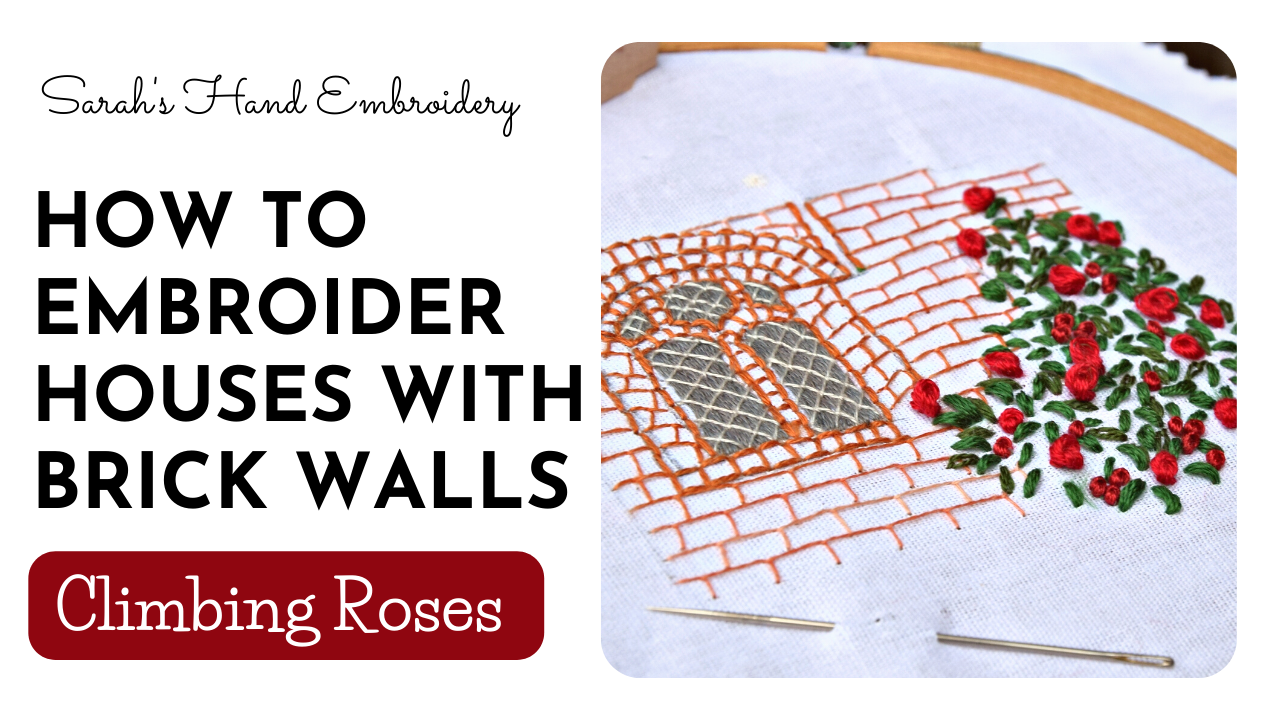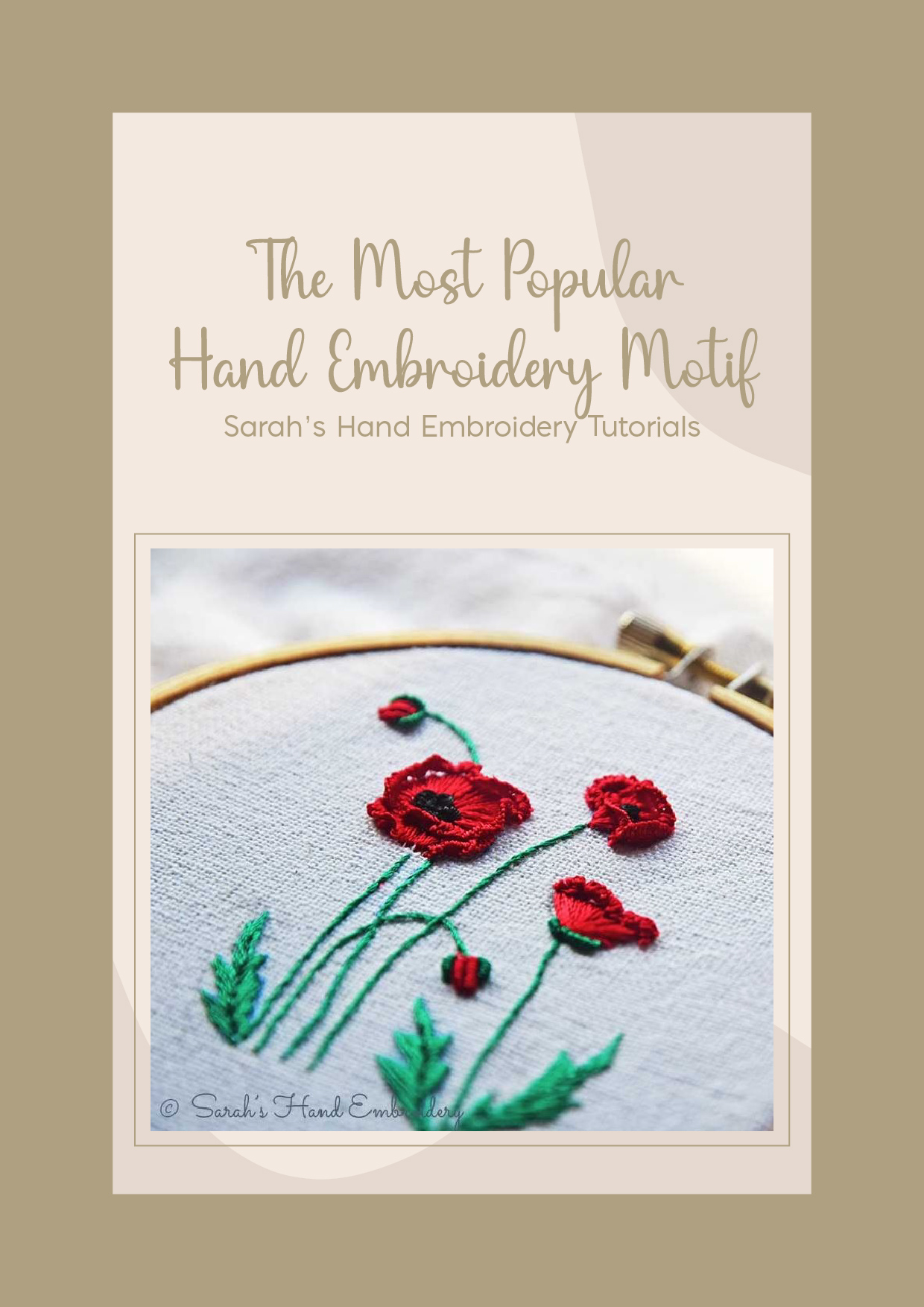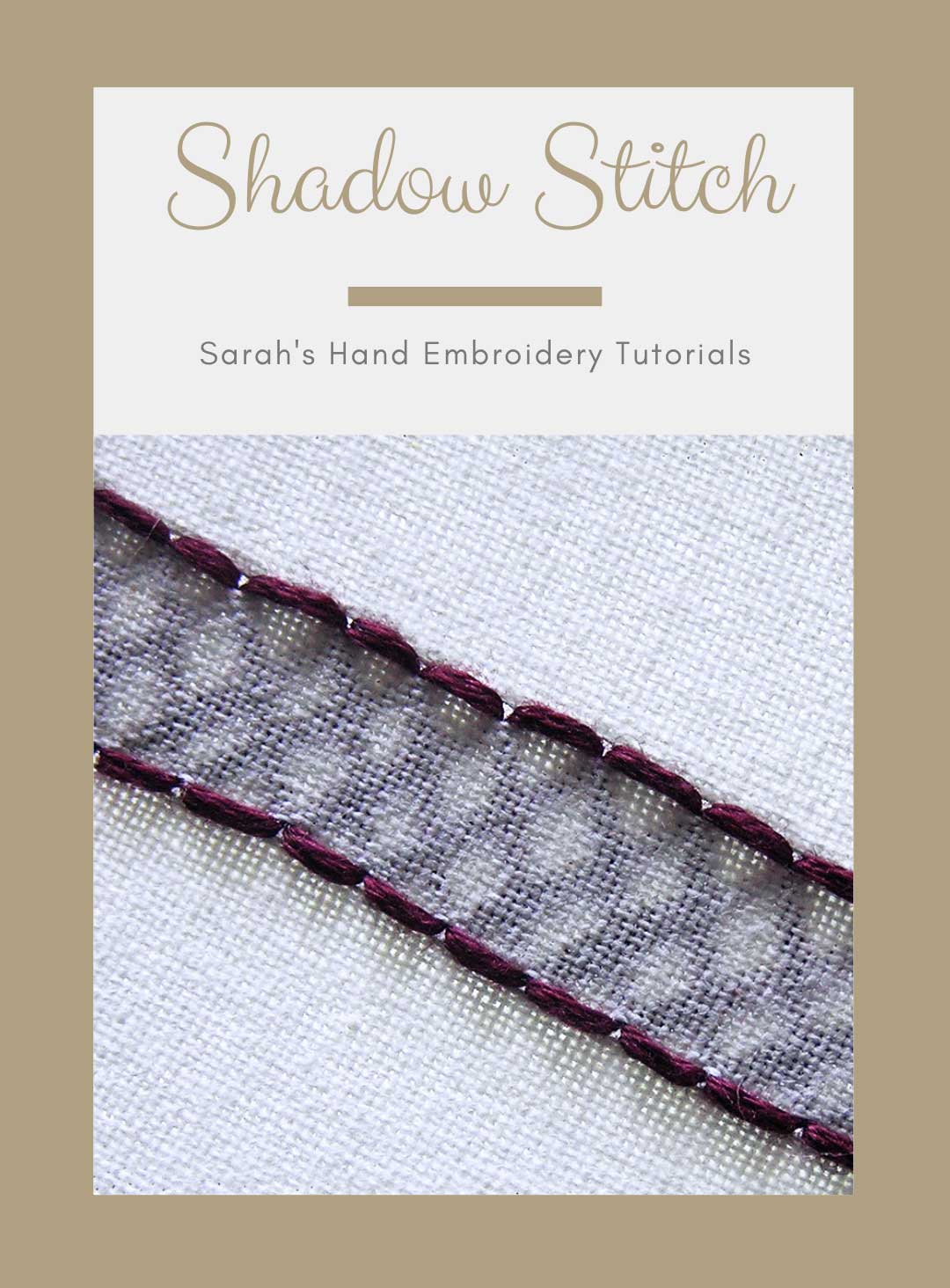
Double Chain Stitch is also known as
Closed chain stitch [EN], Punto de cadeneta doble [ES], Chaînette double [FR], Geschlossener kettenstich [DE], Punto catenella doppia [IT], Ponto de cadeia dupla [PT], Dubbel kedjesöm [SV].
How to do the Double Chain Stitch
This stitch follows the same technique as a simple Chain Stitch. The only difference between the two is that a double chain stitch is done over two parallel stitch lines, instead of one. Thus, in the end, the visual effect is that it looks more or less like an Open Feather Stitch. To be able to do this stitch, it is good if you are aware of the Chain Stitch technique. I will be working on two straight parallel stitch lines, from bottom to top. All the stitch points will lie on the stitch line.
 |
 |
| Fig 1: Bring out the needle through A which lies on one of the stitch lines. Put the needle in through B which lies horizontally opposite to A on the other stitch line. Peek the needle out through C and loop around the thread as shown. | Fig 2: When you pull out the needle, you would get a chain stitch loop with an open base. Now, put the needle in through A and peek it out through D to begin the next loop. |
 |
 |
| Fig 3: Loop the thread around the needle as shown. | Fig 4: Bring out the needle and tighten the loop. Continue this action of making loops with an open base on the left and right stitch lines alternately. The beginning of each new loop will be inside the previous loop on that respective stitch line. |
 |
|
| Fig 5: A horizontal view of the finished pattern will look like this. | |
 Sarah has been researching and sharing hand embroidery lessons for over 17 years, making it accessible to everyone around the globe.
Sarah has been researching and sharing hand embroidery lessons for over 17 years, making it accessible to everyone around the globe.





My double chain stitch motif

Wow, I have never really thought of workign this stitch as an outline for floral patterns. This is a great idea and effect!
Thank u for sharing this Sarah. It was a great and new learning for me


Wow, Harnil! Your work is gorgeous! Love the colors and the pattern! Thank you so much for sharing. ❤️
Thank you for the instructions, it was grat learning,I just have a bit of a problem with how hard i pull on the tread. learnd a lot, Thank you
Always welcome, Polona. So happy that you enjoyed this page. Sometimes it takes a few tryings before we get to understand the best way to do certain stitches- it’s all in the hand! 😁
I read this stitch’s directions the other day and just used it on a piece, easy peasy. I don’t know why everyone else was having problems with it. You did a great job explaining. Thank you.
Thanks Jessie. 🙂
Hi, Sarah. I’ve been practicing the double chain stitch on my dolls. I find it great for borders and curves.
I see other people are finding it difficult, it was a little confusing for me at first. But then I just got it!
Thanks for keeping this website, thanks for your tutorials.
María
WOW Maria,
Thanks for sharing this. You have used this stitch wonderfully! 🙂
dear sarah,
i am not able to do this stitch…. i spent like an hour in trying this one .. but it was becoming really confusing ..
could you plz help me with further explanation.
Dear Jalpa,
Try to follow only the pictures, if you are feeling confused. Try to just copy exactly what you see in the picture first, and as you do, try to figure out how it goes. Let me know if you are still caught up. It will help me if you tell me exactly where you are getting confused.
dear sarah,
i learnt running stitch and stem stitch family, double chain is really difficult.
mansa
Hello Mansa,
Were you able to succeed with this stitch?
Dear Sarah,
The thread u hav used here doesnt look like the anchor thread….could u please tell me if it is the pearl cotton thread?
Dear Shazeenah,
You are right, the thread I have used here is perle cotton. Sometimes, they make clearer lessons! 😀
hey pls can u tell me some design where this double chain stitch is used?
Dear Sangeeta, thanks for your interest. I would suggest that this stitch can be used as borders or outline designs where some embelishments can be added. For instance, using some pearls, buttons or mirrors to fill the gaps. You can also try using this stitch to pin down ribbons. Just be careful to use the right kind of thread, based on how you want to use the stitch.
I might put up some finished projects for you to get more ideas in future. In the meanwhile, I hope this information has helped. 🙂
Thanks Marlin for the suggestion and it is well taken. 🙂 I will keep this in mind for the future stitches. I am following a sort of color scheme for each family of stitches. So, I will use better threads from the next family onwards.
hey Jubs..i suggest you use a darker blend of color against this fabric..i say it will enhance the appeal of the stitch and will show the sequence more brilliantly…just an opinion..:))